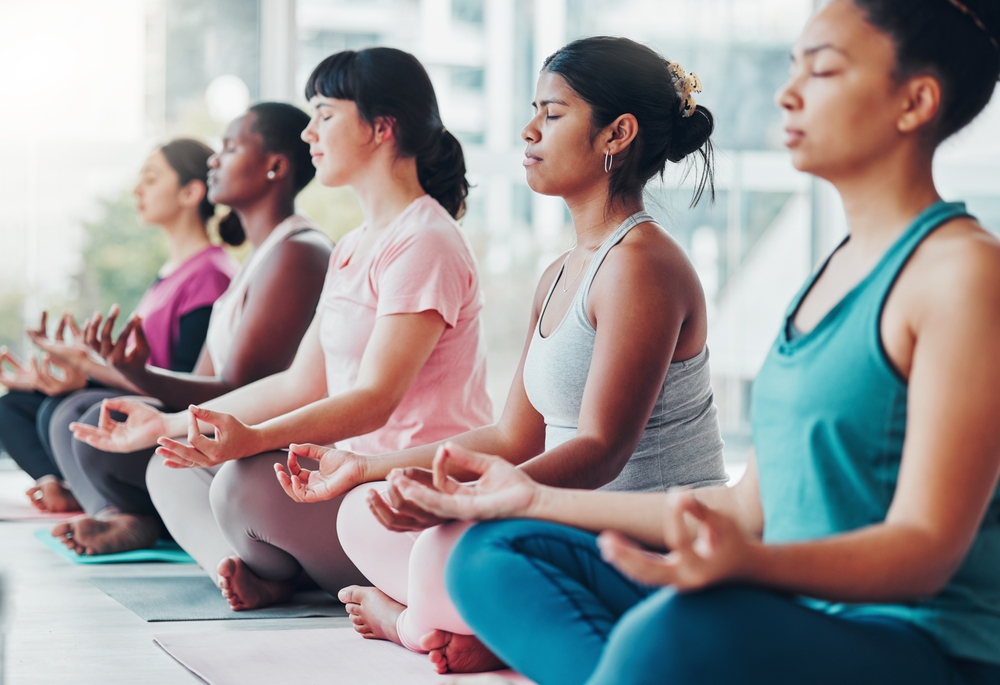A holistic approach to mental health looks at how all areas of your life interact and affect your well-being. The holistic model considers your mental, physical, and emotional health to be interconnected. So if one area is out of balance, it can negatively impact the others.
Holistic therapists emphasize self-care techniques like meditation, yoga, exercise, sleep, and diet as ways for you to support your mental health and find balance. They may also explore how relationships, work environment, financial stress, and other life factors influence your well-being and mood.
Because mental health exists on a spectrum, the holistic approach aims to treat the whole person. It considers how you can build resilience and find purpose to support recovery and growth. Holistic methods also tend to be non-invasive, with a focus on natural remedies and the body’s ability to heal itself when in a state of balance.

Holistic Therapies for Mental Wellness
Holistic therapies take a whole-body approach to mental wellness. Several natural treatments can help reduce stress and promote an overall sense of well-being:
Mindfulness Meditation: Mindfulness meditation involves paying attention to the present moment without judgment. Spending just a few minutes a day focusing your awareness on your breath and the current experience can help reduce racing thoughts and increase relaxation.
- Yoga: Yoga combines physical postures, breath control, and meditation to promote physical and mental well-being. Regular yoga practice may help decrease symptoms of anxiety and depression and lead to an improved mood and outlook.
- Art Therapy: Art therapy allows individuals to express themselves creatively through various art forms like painting, drawing or sculpting. Engaging in the creative process can help reduce stress and provide insight into emotions and thoughts in a gentle, non-threatening way.
- Music Therapy: Music therapy uses music to address emotional, cognitive, and social needs. Listening to soothing music can shift your mood and decrease anxiety, while singing or playing an instrument provides an emotional release.
- Aromatherapy: Aromatherapy involves the use of essential oils to promote relaxation and reduce stress. Oils like lavender, bergamot, and sandalwood have calming properties and can be used in a diffuser or added to a warm bath.
- Acupuncture: Acupuncture is an ancient Chinese practice that involves inserting thin needles into specific points on the body to restore the flow of energy or life force. Acupuncture can help relieve stress, anxiety, and depression.
- Massage Therapy: Massage therapy involves manipulating the body’s soft tissues to promote relaxation and reduce muscle tension. Massage is very soothing and helps ease anxiety and stress. Aromatherapy massages use essential oils that can have added mental health benefits.
- Biofeedback: Biofeedback involves using electronic monitoring to provide individuals with information about physiological processes, such as heart rate and muscle tension. You can then learn how to control these functions. Biofeedback is often used to help treat conditions like anxiety, ADHD, and PTSD.
- Laughter Therapy: Laughter has been shown to have positive effects on mood and stress levels. Laughter therapy, or laughter yoga, combines laughter exercises with yogic breathing.
Holistic treatments tend to be very gentle and the natural alternative. When combined with traditional medicine or therapy, they can be very effective in supporting mental well-being and happiness.

Benefits of a Holistic Approach to Mental Health
A holistic approach to mental health has many benefits.
Comprehensive Understanding
Holistic mental health care considers how all aspects of your life interact and influence your wellbeing. It looks at biological, psychological, social, and spiritual factors. This broad perspective helps identify the underlying causes of issues and how to best support you.
Tailored Treatment
Holistic care recognizes that each person is unique. Treatment plans are customized to meet your specific needs, values, circumstances and preferences. There is no “one-size-fits-all” solution.
Promotion of Wellness
Rather than just managing symptoms, holistic mental health aims to cultivate wellness and help you thrive. It emphasizes lifestyle factors like exercise, nutrition, sleep, and stress management that boost resilience and overall wellbeing.
Preventive Focus
Holistic care helps develop strategies to maintain mental health and avoid problems before they start. Things like mindfulness practices, life coaching and learning coping skills can help build mental fitness and head off issues.
Integration of Alternative Therapies
Holistic mental health incorporates alternative treatments like mindfulness, meditation, yoga or art therapy with traditional talk therapy. This blended approach can enhance the benefits of both.
AT MD Home Detox We Are Ready To Support You Through This Journey
At MD Home Detox, we take a holistic approach to mental health treatment. Our caring staff is here to support you through your journey to wellness. We offer personalized inpatient and outpatient programs to treat conditions like depression, anxiety, PTSD, and mood disorders.
Our therapy options include counseling, cognitive behavioral therapy, mindfulness techniques, and more. We create treatment plans tailored to your unique needs and situation. No two people experience mental health challenges the same way.
We get to know you and your personal story so we can determine the root causes of your symptoms. Then, we build a customized program using the therapies and treatments that will be most effective for you. Our goal is to give you the skills and strategies to live a happy, healthy life.
Whether you need intensive inpatient care or prefer to continue living at home while receiving treatment, we have options for you. Don’t suffer in silence – take that first step and reach out to us. We are ready to walk beside you on your journey toward holistic wellness and recovery. Call us today at 1 (888) 592-7931 for a free consultation.


